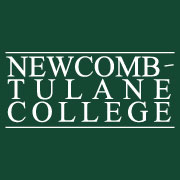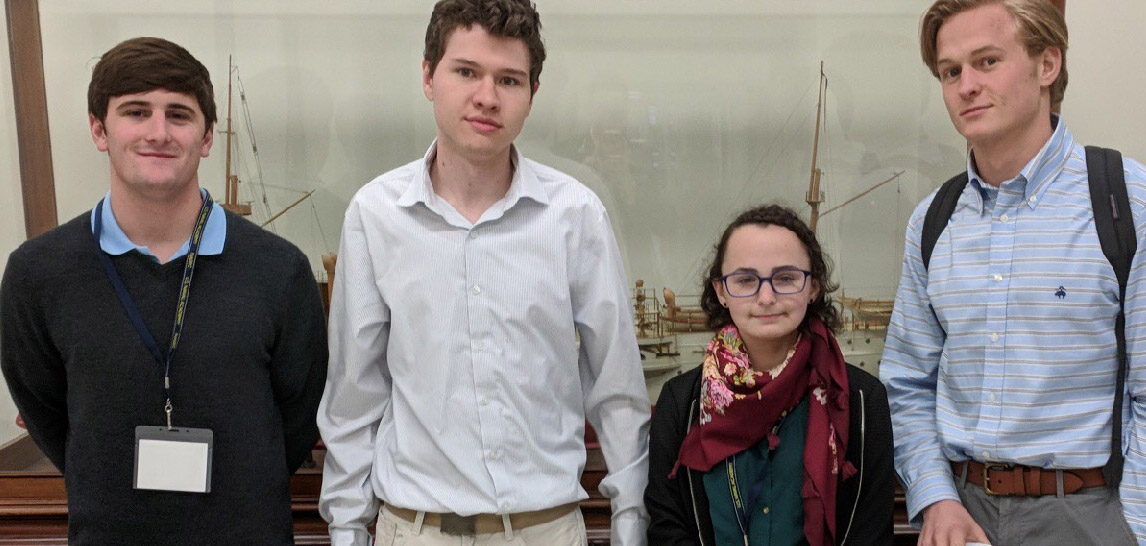With funding from an NTC Dean’s Grant Jacqueline Failla, Conrad Leonik, Michael Conrad, and I were able to travel to the 2017 Naval Academy Science and Engineering Conference at the United States Naval Academy in Annapolis, MD. During the conference, our group interacted with students and professionals from around the country and shared work of which we have been a part here at Tulane.
The themes of this year’s conference were Artificial Intelligence and Space Exploration. The conference is unique in its structure. Students are spread across a few dozen groups that are oriented toward one of the conference’s themes. Each individual group is then responsible for identifying a challenge within that domain. The group spends several hours a day over the span of the conference deliberating and designing an interdisciplinary framework which researchers, engineers, industry leaders, and policy makers might use to approach the challenge. The group creates a slide deck and accompanying presentation that serves as one of the conference’s student-made deliverables.
While not in the working groups, attendees hear from and interact with a wide range of experts in the fields related to the themes of the conference. This year’s slate of speakers was comprised of several astronauts, NASA administrators, researchers and entrepreneurs with keen interests in artificial intelligence, and the chair of the Artificial Intelligence Caucus from the United States House of Representatives. In the eyes of the Tulane representatives, the star of the weekend was Sunita Williams (Captain, U.S. Navy, Ret.), a veteran of the Navy and our country’s space program. Her service to the country, career on the final frontier, and vision for the future of space exploration are inspiring.
The posters presented at the conference represented Tulane’s diverse research interests. Ms. Failla presented, “Characterization techniques on MoS2 using LabVIEW.” Mr. Leonik presented, “Using phase resetting theory to understand the effect of Propofol on a population of cortical LTS interneurons.” I presented, “In search of an auditory biomarker of concussion.”
With NTC’s help, we were able to represent Tulane at the conference with our research, in our discussion groups, and as we interacted with the various speakers. We certainly learned a great deal, and are grateful for having been given the opportunity to attend NASEC 2017.
Written by Grant Rauterkus, pictured at far right, Dean’s Grant recipient, 2017

